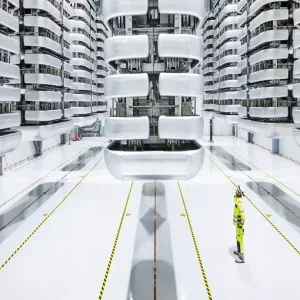Based in Jubail, the SADAF joint venture comprises six petrochemical plants having a combined annual output of over 4 million metric tons.
Shell’s exit from the joint venture is a premature one with the original agreement due to terminate naturally in 2020.
For Shell, the decision is said to enable it to channelize its focus on downstream operations and also on selective investments to back the growth of its worldwide chemicals business.
The Anglo-Dutch multinational oil and gas company’s other activities in Saudi Arabia will not be affected by the SADAF divestiture.
Shell chemicals executive vice president Graham van’t Hoff said: “Our partnership with SABIC, spanning more than thirty years, has been a great success story. We’re proud to have established together one of the first petrochemical ventures in Saudi Arabia – it has grown substantially since the start, in 1986.
“We will continue to explore potential future opportunities with SABIC.”
On the other hand, SABIC stated that through the acquisition of Shell’s stake, it will be in a position to further streamline operations at SADAF. Besides, the Saudi chemical manufacturing company revealed that it would invest further in the facilities to integrate them with its other affiliates.
SABIC vice chairman and CEO Yousef Al-Benyan said: “Since SABIC’s early days, we have enjoyed a strong relationship with Shell Chemicals. We are confident that our journey of partnership together will continue and grow in strength.
“With this transaction SABIC is looking to capitalize on synergy opportunities of SADAF with other affiliates, and improve its operation and profitability.”
The deal, subject to regulatory approval, is likely to be closed later in the year.






